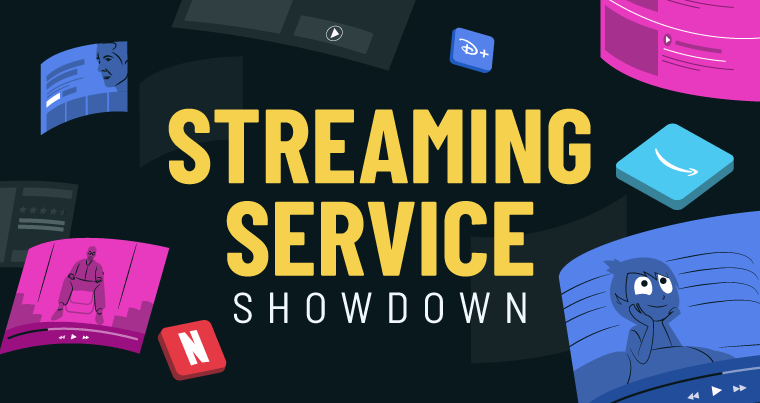Your credit score impacts almost every aspect of your financial life, from securing a mortgage or an auto loan to getting approved for a credit card or even landing certain jobs. A high credit score can open doors, while a low or “bad” credit score can hold you back.
But what exactly is considered a bad credit score, and how can you improve it if it falls into that range? Let’s go over everything you need to know about bad credit scores, what causes them, why they matter, and actionable steps you can take to improve them.
What is a bad credit score?
Credit scores are numerical ratings used by lenders to assess the likelihood of a borrower repaying debt. Typically, a credit score ranges from 300 to 850, with higher credit scores indicating better creditworthiness. Two of the most commonly used credit scoring models are FICO® Score and VantageScore®. Each has its own scale for defining a “bad” credit score.
FICO Score
The FICO Score ranges from 300 to 850. A score below 580 is generally considered poor, indicating that you are a higher risk for lenders. This lower credit score can lead to challenges in obtaining loans or credit at favorable terms. Here’s a general breakdown:
- 300 – 579: Poor
- 580 – 669: Fair
- 670 – 739: Good
- 740 – 799: Very Good
- 800 – 850: Exceptional
VantageScore
Similarly, the VantageScore also ranges from 300 to 850. In this model, a score between 500 and 600 is considered poor. Like the FICO Score, a bad VantageScore can suggest that you pose a greater risk to creditors. However, its breakdown differs slightly from FICO:
- 300 – 499: Very Poor
- 500 – 600: Poor
- 601 – 660: Fair
- 661 – 780: Good
- 781 – 850: Excellent
What causes a bad credit score?
Several factors can contribute to a poor credit score:
Late or missed payments. Payment history is a significant factor in both FICO and VantageScore models. Late payments, especially those over 30 days, can quickly lower your score.
High credit utilization. Using a large percentage of your available credit (typically over 30%) can negatively affect your score. Credit utilization ratio is the amount of credit used compared to your total credit limit, and high utilization signals financial strain.
Limited credit history. Having a short or nonexistent length of credit history can also result in a low score, as lenders have less information to predict your behavior as a borrower.
Frequent hard credit inquiries. Applying for credit too often results in hard inquiries, which can lower your score temporarily. Multiple hard inquiries in a short period may suggest financial instability to lenders.
Debt collections or bankruptcy. Major financial setbacks like debt collections, foreclosures or bankruptcy filings can severely impact your credit score, making it fall into the poor range.
Why does having a bad credit score matter?
A poor credit score can have a ripple effect on your financial life. It may result in:
Higher interest rates. Lenders view a low score as a sign of risk, which means they’re likely to charge higher interest rates on loans or credit cards.
Loan and credit card rejections. You may find it challenging to secure different types of loans and financial products, including everything from home mortgages to personal loans and credit cards. You may qualify for bad credit loans or no credit check loans, though these will almost always have higher interest rates than loans available to borrowers with higher credit scores .
Difficulty renting an apartment. Many landlords check credit scores before approving rental applications. Renting an apartment with bad credit can limit your housing options or require you to pay a higher security deposit.
Employment challenges. Some employers perform credit checks as part of the hiring process. A low score can affect your eligibility for positions, particularly in finance or jobs that involve handling sensitive information.
Auto financing difficulties. If you have a bad credit score, buying a car or leasing will also become more expensive. Lenders might have additional requirements for eligibility, such as making a larger down payment. Or, you might get less favorable loan terms overall, such as higher monthly payments or paying more in hidden interest and fees.
What is considered a good credit score?
Good credit scores typically fall within these ranges:
FICO: A score of 670 and above is generally considered good. Higher scores (740+) are considered very good to exceptional.
VantageScore: A score of 661 or above is regarded as good, with 781 and above falling into the excellent range.
Scores in the good or above range demonstrate responsible financial habits and a low likelihood of default, making it easier to secure loans with favorable terms.
What to do to fix your credit score.
Improving your credit score is a process that requires time and effort, but it’s certainly achievable. Here are some steps to consider:
Review your credit report. Start by getting a copy of your credit report from each of the three major credit bureaus (Experian, Equifax, and TransUnion). Look for errors in your credit file, such as incorrect balances or accounts that aren’t yours, and dispute any inaccuracies.
Pay bills on time. Consistently paying bills on time is one of the most impactful ways to improve your credit score. Consider setting up automatic payments or reminders to ensure timely payments.
Reduce credit utilization. Aim to keep your credit utilization below 30% of your total credit limit. Paying down existing balances and refraining from making large purchases can help lower utilization.
Avoid opening new credit accounts. Limit the number of new credit applications, as each hard inquiry can temporarily lower your score. Focus on improving your existing accounts instead.
Consider a secured credit card. If you’re struggling to get approved for traditional credit, a secured credit card can help build credit. With a secured card, you put down a refundable deposit, which acts as your credit limit.
Negotiate with creditors. If you’re facing challenges making payments, reach out to credit card issuers and any other creditors to discuss payment plans or options for reducing interest rates. Some creditors may also be willing to remove a late payment record in exchange for a goodwill adjustment.
The Bottom Line
A bad credit score can create financial obstacles, but it’s not a permanent status. By understanding what affects your credit score and taking steps to build healthy financial habits, you can improve your credit over time. Start by reviewing your credit report, setting up a plan to pay bills on time, and reducing credit utilization. With patience and persistence, you can repair your credit score and work toward financial freedom. Remember, small steps taken consistently can make a significant difference in reaching your goal of a good or even excellent credit score.






